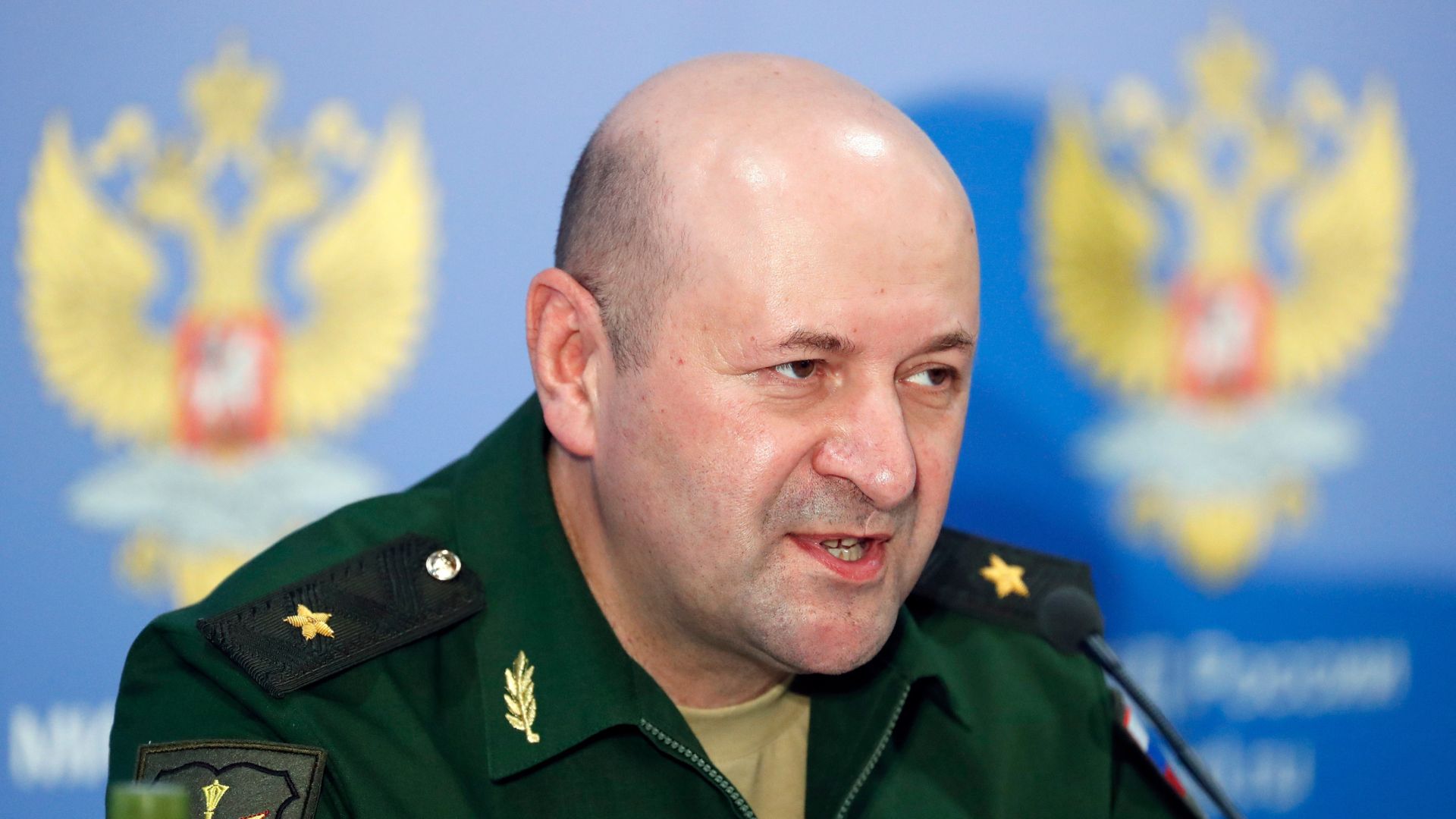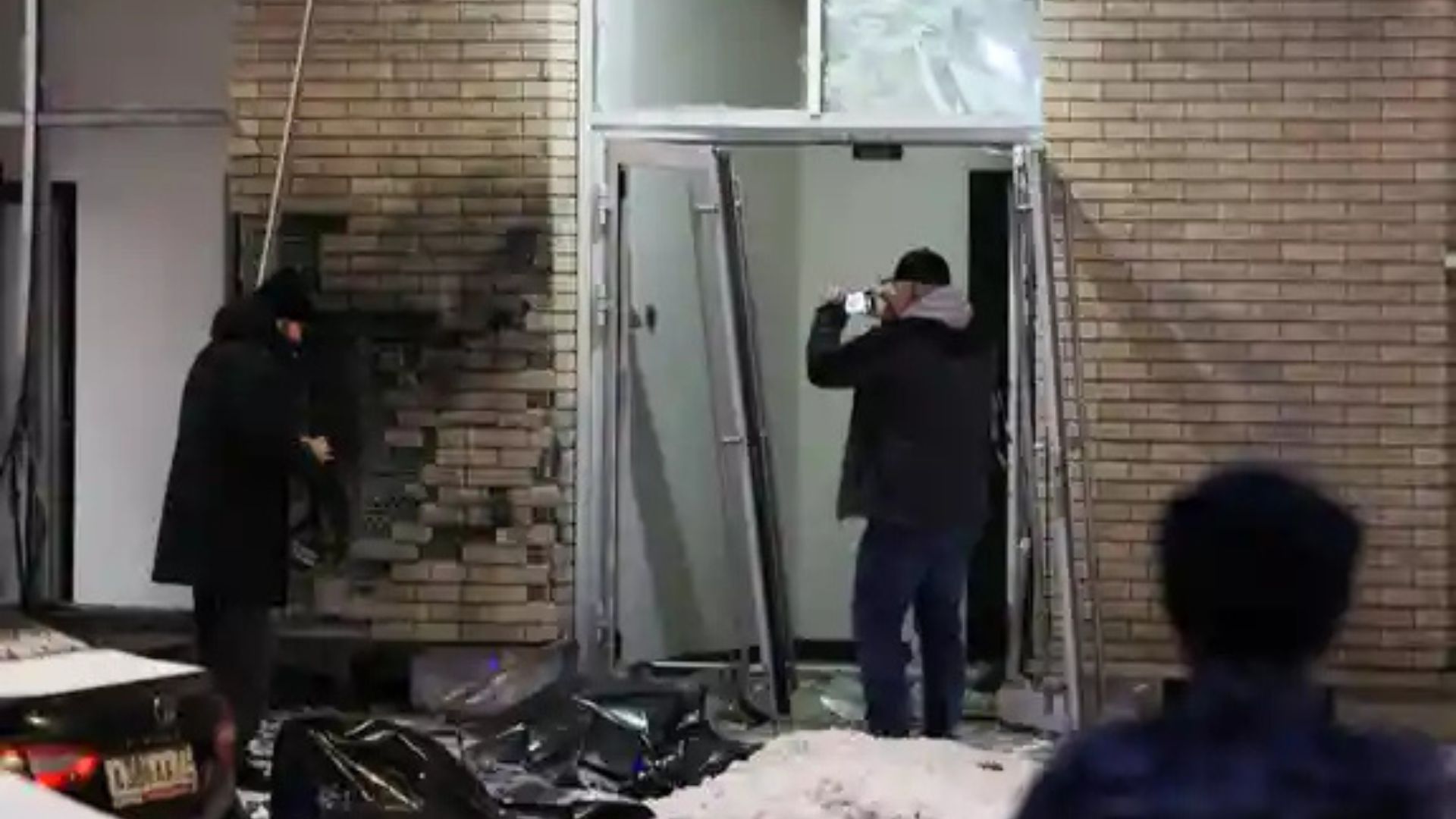(Reuters): Lieutenant General Igor Kirillov, a well-known Russian general, was killed in Moscow on Tuesday after Ukraine accused him of supervising the deployment of chemical weapons against Ukrainian forces. One of the most well-known assassinations committed by Ukraine on Russian territory, the murder was proven to have carried out by the Ukrainian intelligence agency, the SBU.
As he and his aide approached an apartment complex, a bomb concealed in an electric scooter burst, killing Kirillov, the commander of Russia's Nuclear, Biological, and Chemical Protection Troops. Russia's Investigative Committee said the attack took place outside a building on Moscow's Ryazansky Prospekt. With explosives hidden in the scooter, an SBU source told Reuters that it was responsible for the intended killing.

Kirillov's killing is significant since he was the highest-ranking Russian military leader murdered by Ukraine within Russia. He was 54 years old. In reaction to the attack, the Russian government is expected to examine security procedures for its top military officers. Russian authorities are likely to seek retribution for the death of former president Dmitry Medvedev, who is currently a top security officer, because he has warned of imminent vengeance.
Moscow views Ukraine's activities as an attempt to demoralize Russia and punish individuals it says are responsible for war crimes, as Ukraine has long been accused of carrying out a series of high-profile killings on Russian territory. Ukraine, which views Russia as a grave existential threat, has responded by defending targeted executions as a legitimate defense tactic.
Pictures and videos taken at the location of the assassination demonstrated the devastation the explosion had created, including a broken apartment building entryway with bricks destroyed by the bomb and doors hanging off their hinges. On the snow-covered ground were what looked like the bodies of Kirillov and his assistant, covered with black plastic sheets.
Russian investigators launched a criminal investigation into the murders of the two servicemen in reaction to the killings, and law enforcement sources said that a terrorism case will probably be prosecuted. The attack's targeted character and potential security ramifications have been underlined by the Russian media.
Married and with two sons, Kirillov was often featured on Russian official television, where he gave briefings accusing the West of various crimes and Ukraine of breaching nuclear safety procedures. Kirillov was a vocal supporter of Russia's repeated denials of Ukraine's allegations of using chemical weapons.
Russian Foreign Ministry spokesperson Maria Zakharova praised Kirillov, describing him as a brave defender of the nation's interests. She commended his efforts to uncover what Russia perceives to be Western crimes involving chemical weapons and the purported cover-ups, especially in Syria and other war areas.
Due to allegations of the use of chemical weapons, including riot control agents and the poisonous choking agent chloropicrin, Kirillov and his men were subject to sanctions from the United Kingdom in October. According to Ukraine, Russia employed these chemical agents to render Ukrainian troops incapable of defending themselves against Russian attacks.
Only a day after Ukrainian state prosecutors accused Kirillov of using prohibited chemical weapons in absentia, he was assassinated. Kirillov’s identity was found in Myrotvorets (Peacemaker), an unofficial Ukrainian database that follows those deemed to be Ukraine’s opponents, the SBU said. After he passed away, the database changed his status to "Liquidated" in red letters.
Since the beginning of Moscow's full-scale assault in February 2022, Ukraine has been conducting targeted killings in Russia, and this assassination fits within a pattern. Prominent incidents include the 2023 café explosion that killed pro-war blogger Vladlen Tatarsky and the 2022 truck bomb assassination of Darya Dugina, the daughter of nationalist philosopher Alexander Dugin.
Other high-profile murders have also been attributed to Ukraine, such as the death of a Russian submarine commander who was charged with war crimes by Kyiv. Ukraine's approach of attacking those it believes are responsible for the aggression against the Ukrainian state is reflected in these acts.

The responsibility of Russia's RKhBZ (Radiation, Chemical, and Biological Defense Troops), a special forces unit entrusted with safeguarding Russian ground personnel functioning in harsh and dangerous environments, such chemical or radioactive pollution, is highlighted by Kirillov's passing. Under Kirillov's leadership, the soldiers have played a significant role in Russian military operations, particularly in regions where biological and chemical warfare are being used.
With both sides stepping up their tactics in a war that has already caused a great deal of death and destruction, the recent killing elevates the stakes in the ongoing struggle between Russia and Ukraine. There will probably be more escalations and retaliation following the death of such a high-ranking official in the Russian military.
Both sides accuse one another of increasingly ruthless tactics as the world closely observes Russia as it deals with the shock of losing one of its top military officers. Targeted killings by Ukraine remain a source of controversy since Ukraine says that these actions are required for self-defense, while Russia argues that they violate international law.
Now, more attention will be paid to the safety and morale of the Russian military, especially its leadership. In the wake of Kirillov's passing, Russian authorities are probably going to take additional measures to safeguard senior military officers, which might involve stepping up surveillance and strengthening security in Moscow and other strategic areas.
As part of its larger plan to thwart Russian invasion, the Ukrainian government has persisted in defending its conduct. Kirillov's killing is a reminder that Ukraine is still determined to use all of its resources to undermine Russia's military and leadership, even if that involves going to such drastic lengths.
The geopolitical implications of these targeted executions will probably receive more attention as the crisis develops. It's unclear if this well-publicized murder will significantly affect how the war plays out, but it's obvious that tensions between Russia and Ukraine are rising.




























